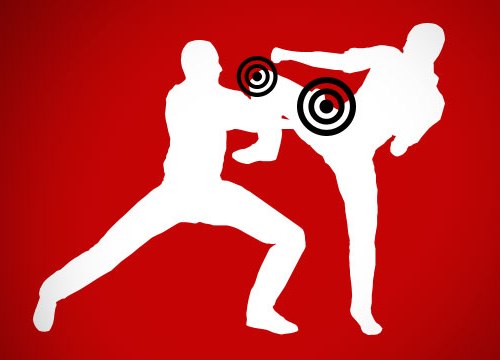Jeff Cooper is perhaps the nation's foremost authority on defensive weapon craft. Col. Cooper developed seven principles that he called his "principles of personal defense." These rules should be the basis for any strategy of personal safety. They are:
There is an evaluation process that occurs with human predators where they assess the potential of a target. In doing so, they project's their intentions by watching, following and even testing you. If you recognize this process you can spot predatory intent before an assault can be initiated.
Ever had a feeling that something is not right?
Instinct is often considered to be the result of information that your brain has processed subconsciously. Whether that's actually true is something for science to decide. The end result is that your gut feelings about a situation are generally trustworthy. If a situation feels wrong, but you "can't quite put your finger on it," then you should act on the premise that there is a problem and take appropriate action.
2. Decisiveness.
When you recognize a threat, you have to act immediately. Once a threat is identified you should know the appropriate action to take. By planning for common threats you will be more prepared and decisive about your response to them.
3. Aggressiveness
It is important to remember while laws vary by jurisdiction in the United States, there are four general guidelines when considering if you have the legal right to defend yourself physically:
- You honestly & reasonably perceive the person to be a threat.
- Your response is immediate, and to an immediate threat.
- All other means of resolution were precluded.
- You employ the minimum level of force you reasonably believe necessary to get to safety.
Because we have a legal responsibility to adhere to self-defense laws, aggressive behavior could be judged to violate these laws. If you have exhausted all means to avoid physical conflict, then an aggressive counterattack can be justified. When attacked, and it is clear that you are in danger your life could depend upon an aggressive counterattack.
4. Speed
This is a combination of both decisiveness and aggression. Again, once the decision has been made that action is warranted take decisive action, and if required do so with a justified aggressive response. By delaying or stalling for time, you are just giving your assailant more time to attack.
5. Coolness
After alertness this could be considered the most important rule. In times of crisis you need to remain calm, let your planning and training guide you to the appropriate action you should take. Do not make a bad situation worse by losing control of your emotions, either through anger, fear or panic. All these emotions are a liability and can inhibit your ability to react correctly to the situation.
If the event you are forced to defend yourself, during a disaster scenario or even in your daily affairs. You should strongly consider how you would protect yourself.
Remember even when defending yourself you are bound to legal regulations for the proper use of force. Law enforcement agencies are required to use guidelines in the use of force escalation, these guidelines can be applied to a personal defense plan also.
Force Escalation:
- Physical Contact - Requires a degree of skill and physical strength to be effective. Requires close proximity to assailant. Has the potential to inflict lethal injuries.
- Irritant Gases - Only effective if sprayed into the eyes or the nose, and then not always. They are considered non-lethal. It is possible for the gas to affect you depending on environmental conditions and proximity of the assailant.
- Electronic Weapons - Except for a Taser, they require close proximity to assailant. They are considered non-lethal. Legal restrictions apply in many jurisdictions.
- Impact Weapons - Requires training for proper use. They require close proximity to the assailant. They have the potential to inflict lethal injuries. Legal restrictions apply in most jurisdictions.
- Firearms - Requires training for proper use. Close proximity to assailant is not required. Considered use of deadly force and subject to legal restrictions in all jurisdictions.
A few words about firearms, if you have decided not to use firearms, you should be aware there are enough firearms to arm every man, women, and child in America. Even in the best of times there are people who have no qualms about using them to take advantage of others, in times of desperation these attacks will only multiply. If you have decided to use firearms, your first priority should be training. The importance of training cannot be overstated. Safety, marksmanship, and proper maintenance are all areas that should address in your training.
While you are bound to legal restrictions on the use of force for personal defense, you are not required to consider an attacker's safety that jeopardizes your own. You may use force when and to the extent you reasonably believe necessary to protect your life, or that of another person in the face of an imminent threat of death or grave bodily injury.


